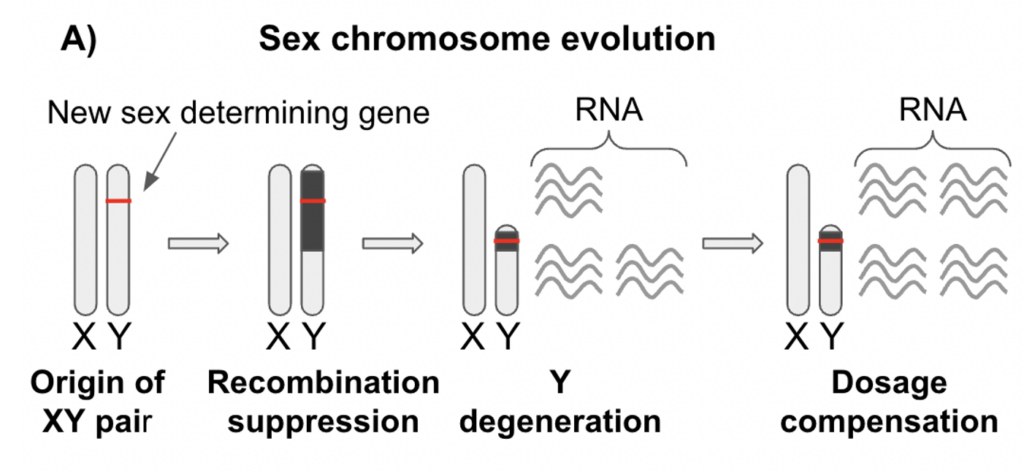
Sex chromosomes, such as the X and Y of mammals, are involved in sex-determination in many animal and plant species. Their sex specificity leads them to evolve differently from other chromosomes, and acquire distinctive biological properties. The Vicoso group investigates how sex chromosomes evolve over time, and what biological forces are driving their patterns of differentiation.
The Vicoso group is interested in understanding several aspects of the biology of sex chromosomes, and the evolutionary processes that shape their peculiar features. By combining the use of next-generation sequencing technologies with studies in several model and non-model organisms, they can address a variety of standing questions, such as: Why do some Y chromosomes degenerate while others remain homomorphic, and how does this relate to the extent of sexual dimorphism of the species? What forces drive some species to acquire global dosage compensation of the X, while others only compensate specific genes? What are the frequency and molecular dynamics of sex-chromosome turnover?